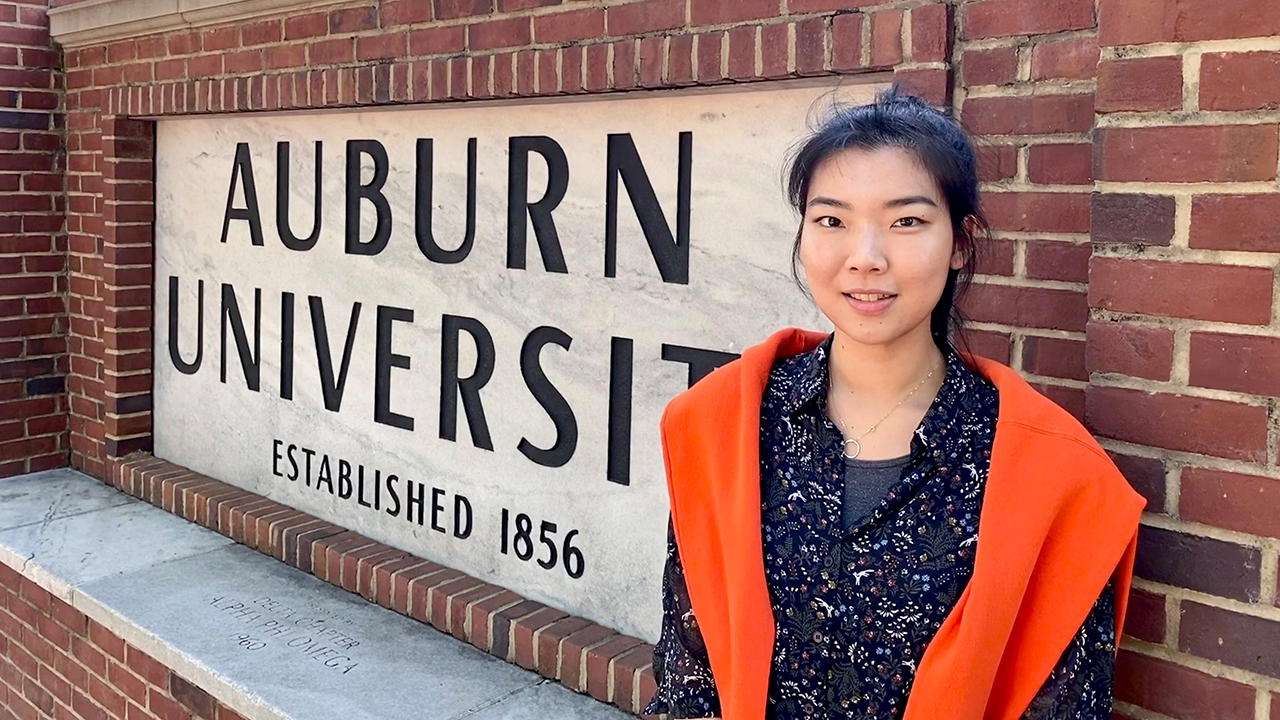Graduate student in aerospace engineering selected for prestigious fellowship
Published: Jul 13, 2022 8:00 AM
By Joe McAdory
Yaeji Kim, a fifth-year graduate student in aerospace engineering, wants to learn essential skills for dealing with big data in astronomy-related fields and apply this toward creating surface color maps of asteroids.
Kim will master this, and more, at the LSSTC Data Science Fellowship Program at Northwestern University in Evanston, Illinois, Sept. 18-23, where chosen students are given the opportunity to take part in six one-week sessions over a period of two years.
“One of my current research projects is to understand surface alterations of near-Earth asteroids (NEAs) driven by their close encounters with Earth,” said Kim, a student in assistant professor Masatoshi Hirabayashi’s Auburn University’s Space Technology Application Research (STAR) lab. “As an advanced research topic, I am interested in generating surface color maps of main-belt asteroids that include NEAs and non-NEAs to visually show how the surface will be affected by close planetary encounters. Comparing surface color maps can show surface differences between non-NEAs and NEAs and provides insight into the correlation between close interplanetary encounters to surface alterations.”
Kim said to achieve this, she needs to learn how to manage large amounts of data and skills for creating surface maps for analysis. “I am anticipating that I can learn how to deal with huge science data and skills in imaging processing from the LSSTC Data Science Fellowship Program,” she said.
Kim, who earned her undergraduate in aerospace engineering at Korea Aerospace University before coming to Auburn, said numerical simulations are essential to developing technologies for aerospace and astronautics.
“The accurate simulation results usually require a large data set,” she said. “If the data set, however, is huge, we will face some critical issues such as long computation time. Although this will necessitate better computing hardware, the hardware development is limited. Thus, improving and learning how to efficiently handle big data are indispensable procedures in aerospace and astronautics.
“Also, we do research in a new generation of ground and space-based surveys generating petabytes of data per year. The increment of the complexity of data coming from these instruments also requires the skill of handling big data. I believe the skill of effectively managing big data will allow us to enable more diverse space missions and astronautics-related practices.”
Hirabayashi believes the fellowship is a “tremendous opportunity for Yaeji to learn how critical data mining is used in space research.”
“Our lab has been involved in multiple missions, which will generate and analyze big data,” he said. “By this, I believe that physical modeling and data processing must harmonize with each other. I am proud of Yaeji, who will acquire cutting-edge skills on data processing through this prestigious program and will lead bridging these two key areas in future space research. I am always happy to support her to achieve her goals.”
Students participating will have the opportunity to enhance their education in a variety of subjects at the fellowship, including software engineering, statistics, machine learning, scalable programming and data management, time series analysis, image processing, visualization and science communication.
“Not only these technical skills, but the LSSTC fellowship will also provide sessions to learn how to effectively communicate science topics with audiences and colleagues,” Kim said. “They mentioned that they aim to create a collaborative, supportive learning environment and work to empower students to teach the skills they learn to others.”
Kim is no stranger to accolades. She was awarded the prestigious Zonta International Amelia Earhart Fellowship — one of just 30 recipients worldwide for 2020-21.
Media Contact: , jem0040@auburn.edu, 334.844.3447
Yaeji Kim will learn how to manage large amounts of data for creating asteroid surface maps for analysis.

